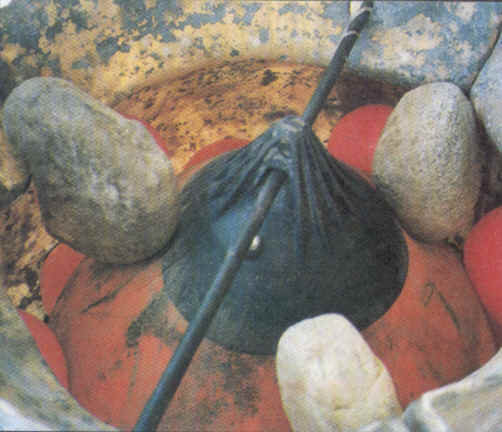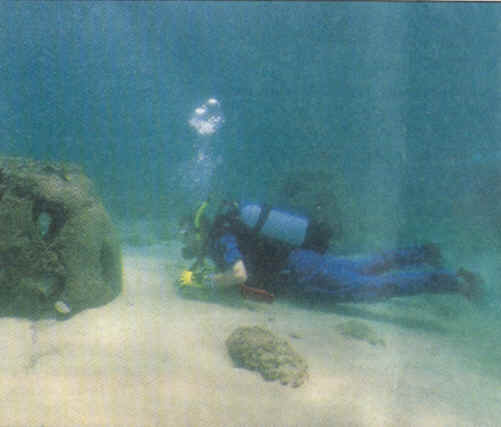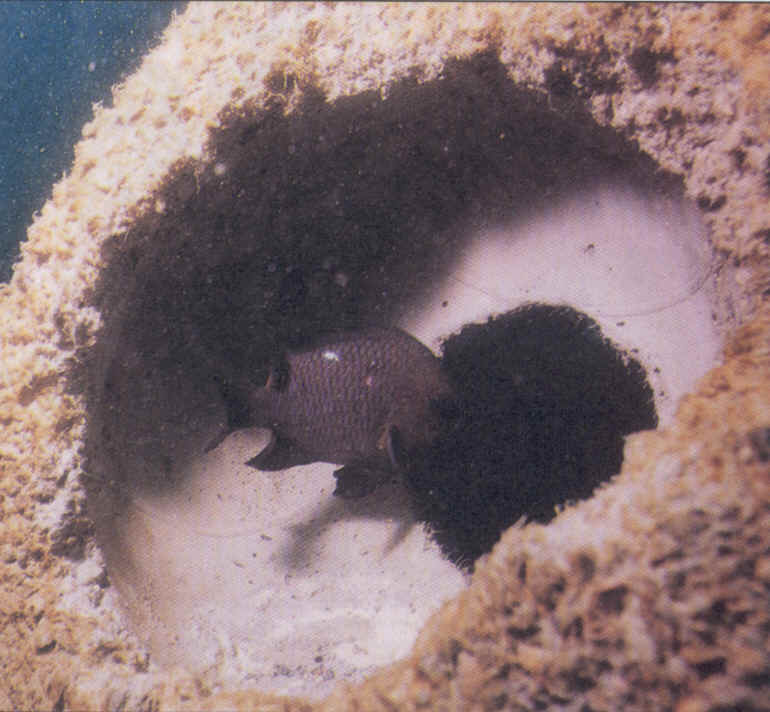THE first of a number of `Reef balls' have been deployed in Ras al Hamra Recreation Centre's bay, launching a PDO-sponsored Ras AI Hamra SubAqua Club (RAHSAC) project to study ways of restoring and fostering marine growth.
A general decline in the diversity and proliferation of the world's reefs over the years due to anchoring, over-fishing and pollutants motivated the dive club to join in the international campaign to save the reefs.
Their initiative--Project Reef Creator or 'Pro-Creator' for short--is the result.
"Pro-Creator is designed to test the Florida-based `Reefballs' concept, which is said to represent the world's most advanced artificial reef technology," says RAHSAC Environmental Officer, Nic Heymans.
Reefballs are concrete beehive-type structures about a metre high. They weigh 1.2 tonnes and are criss-crossed through the middle with tunnels. The concrete consists of an environmentally-friendly composite which, over time, becomes pH-neutral to encourage coral growth. The tunnels imitate the cracks and crevices found in natural reefs.


REEFBALLS: Inflatable bouys give shape to the concrete tunnels (left); and a finished ball (right)
The first Reefballs were constructed in the Mina al Fahal harbour under supervision of PDO's Coastal Operations Supervisor, Abdullah Hall, with technical assistance from Al Turki Materials Manager Dr L.V. Raja and Grace Construction Products' L.P. Samant, who supplied some of the environmentally-friendly additives for the concrete.
The first three balls were lowered from the PDO barge onto the sandy bottom of Ras Al Hamra bay and moved by RAHSAC divers to the desired location beside the poorlydeveloped coral reefs on the eastern side of Ras Al Hamra bay.
"They are in snorkeling depth," confirms Nic, "but deep enough not to be damaged by low tides or to be a danger to boats. In fact, they are in a spot where we believe fishing boats generally don't come. We want people to snorkel to them and enjoy them. This way everyone can see for themselves what an artificial reef looks like and how it grows."
The idea of introducing reef balls started with MRME Superintendent of Pollution Control, Colonel Suleiman Bin Mohammed Al Busaidy, who encouraged RAHSAC to consider running a project. RAHSAC then presented the concept to PDO Managing Director Brian Ward, who saw the value of the experiment and agreed to PDO participation.

SUBMERGED: Three days later, there is evidence of growth
'The main objectives are to test the balls' effectiveness in building new reefs, restoring damaged reefs, and to find out if the concept can be used to increase the fish population," says Nic. "In addition, they provide a fixed monitoring system for health management of the Mina al Fahal bay."
The project also dovetails well with a "tyre" reefs project also taking place in the MaF bay, especially now that the tyres proved unstable. The Reefball group is hopeful the special concrete mix used for the balls, with a life expectancy of 500 years, will fare better in the long term, demonstrating that with the right approach artificial reefs are viable in Oman.
Despite the one-off costs of buying and transporting the mold, the cost of each ball comes to as little as 35 rials. With the first balls completed, the group now plans to deploy up to 40 more balls near Fahal Island to form the foundation of a detailed Sultan Qaboos University ( SQU) and Ministry of Regional Municipalities and the Environment (MRME) study into using artificial reefs to stimulate coral growth and increase fish stocks.
"The dive club is interested in this project because it's fun to do something new and to contribute towards the preservation of the marine life we enjoy every day,' says Nic. "But for the ministries it is a more serious matter. Fishing is a very important part of Oman's economy and in many parts of the world entire fish stocks have been virtually wiped out. Oman does not intend to let this happen here but, as with all environmental concerns, this means being prepared and exploring every eventuality so that matters don't overtake you."
"We want to demonstrate that with the right approach artificial reefs are viable in Oman."